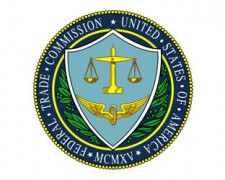 The FTC has called on Congress 3/26 to enact laws to protect individuals’ online privacy and pressed companies to speed self-regulation, stepping up its drive to give Internet users more control over their personal data. The FTC said in a report 3/26 that privacy legislation should include providing consumers access to the info amassed on them by data brokers. The report also said companies should build privacy practices into every stage of product development, give consumers simple choices about privacy and make data practices transparent, including for mobile use.
The FTC has called on Congress 3/26 to enact laws to protect individuals’ online privacy and pressed companies to speed self-regulation, stepping up its drive to give Internet users more control over their personal data. The FTC said in a report 3/26 that privacy legislation should include providing consumers access to the info amassed on them by data brokers. The report also said companies should build privacy practices into every stage of product development, give consumers simple choices about privacy and make data practices transparent, including for mobile use.
“Americans have enthusiastically migrated more and more of their lives online,” FTC Chairman Jon Leibowitz said in a news conference after the report was released. “As a result we have had to ask how consumers can continue to enjoy the riches of a thriving online and mobile marketplace without surrendering their privacy as the price of admission.”
Data companies mentioned in the report — including Choicepoint and LexisNexis — control a large amount of info on internet users. The report asks them to step into the spotlight by forming a “centralized website where data brokers that compile and sell data for marketing could identify themselves to consumers and describe how they collect consumer data and disclose the types of companies to which they sell the information.” The agency also suggests the data brokers allow consumers to obtain information about themselves.
So the focus is more aimed at the back-end data providers with their tracking cookies than the advertisers that use them. Thee cookies gather info about computer users – what they’ve clicked on, searched, etc. — and let marketers serve specialized ads to each user, based on that content and their geographic location.
The FTC flags several of these loopholes and suggests ways for the ad industry to close them: “choices offered should be persistent and should not be overridden if, for example, consumers clear their cookies or update their browsers.”
The FTC recommendations, which build on an initial report issued in December 2010, coincides with efforts by President Obama’s administration to advance online privacy protections. Last month, the White House released a so-called consumer-privacy bill of rights, saying it would work with companies and consumer groups to develop voluntary industry codes of conduct around those principles. The administration also called for privacy legislation, echoing proposals from Commerce Department last year.
Leibowitz said the FTC will participate in the efforts of the Commerce Department, industry and consumer groups to hammer out privacy codes of conduct. The codes, which would constitute promises to consumers, would be enforceable by the FTC under its powers to prevent unfair and deceptive trade practices and could be put to use without waiting for Congress to act.
The FTC strengthened its call on industry, made in the initial report, to develop a do-not-track mechanism that would allow consumers to opt-out of targeted advertising. Leibowitz clarified in the new report that the mechanism needs to allow users to limit collection of personal data, not just provide the means to refuse targeted advertising.
The Digital Advertising Alliance, an association of online advertising groups, said last month it will develop a way to allow consumers to limit collection of personal data through Web-browser settings. The association already lets people stop targeted advertising by its members through icons placed on or near ads. DAA said it expects the browser initiative to be ready within nine months.




